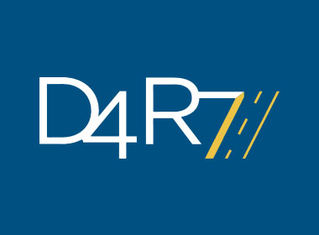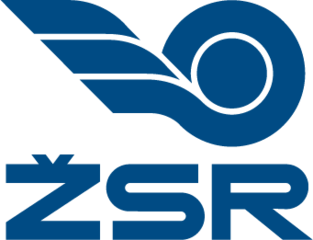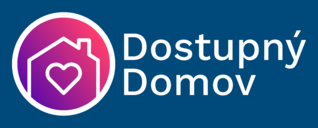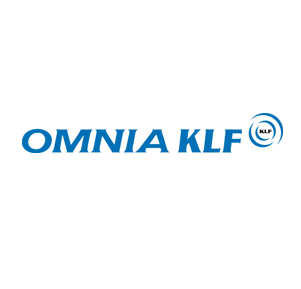Direct investment
Slovak Investment Holding (hereinafter referred to as the “SIH”) as a manager of the National Development Fund II. (hereinafter referred to as the “NDF II.”) implements direct venture capital investments under the Operational Programmes Integrated Infrastructure (OPII), Human Resources (OPHR), Integrated Regional Operational Programme (IROP) and Operational Programme Quality of Environment (OPQoE).
OPII: NDF II. employs a general sectoral approach with the possibility of the implementation of direct investments in all regions of Slovakia. Investments will be carried-out in collaboration with independent co-investors to companies in need of growth equity and quasi-equity capital for their further development. The participation of an independent co-investor must amount to at least 30% of the total size of the investment by NDF II. and the independent co-investor. NDF II. will invest in companies with a scalable product or service with the potential of the significant growth and penetration into international markets and it will prioritise the investment in cutting-edge innovative companies. NDF II. will provide growth capital to companies without the possibility of the buying up the shares from the existing shareholders and it will be exclusively in the position of the minority shareholder.
OPII funds are also used for investments in cooperation with state institutions, which have the task of supporting several infrastructure projects. This form of repayable financing is conditionally advantageous and abstracts from the need for an independent co-investor.
OPHR: One of the main objectives of the financial instruments under OPHR is to improve access to financial resources for the economic and non-economic activities of the Social Economy Entities, Social Enterprises and Social Impact Enterprises (within the meaning of the Act No. 112/2018 Coll. on the Social Economy and Social Enterprises). Improving access to investment resources is intended to eliminate the problems in securing a sufficient supply of capital and investment; to improve access to the labour market for the long-term unemployed; to increase support for entrepreneurship of disadvantaged groups; to ensure the long-term sustainability of volunteer activities; and to promote social inclusion. Direct investments funded by this Operational Programme are intended for Less Developed Regions, i. e. the whole territory of Slovakia with the exception of the Bratislava Self-Governing Region; while in the case of investments aimed at improving housing and employment conditions of the Marginalised Roma Communities (MRC), the relevant areas are the territories with the presence of such communities. The participation of an independent co-investor must represent at least 30% of the total size of the investment.
IROP: Financial instruments implemented under the IROP will serve to fill gaps at the national level, with an emphasis on contributing to improving the quality of life and ensuring the sustainable provision of public services with an impact on balanced and sustainable territorial development, economy, territorial and social cohesion of regions, cities and municipalities. Investments in regional development projects should, in addition to creating an economy based on greater competitiveness, also help promote a high-employment economy that ensures social and territorial cohesion at regional and sub-regional level.
Financial instruments support under the IROP is based on the Ex-ante assessment for financial instruments, prepared in cooperation with the European Investment Bank, and additional ex-ante analysis for culture.
Implementors of investment activities through financial instruments of support of the field of cultural and creative industries under Priority Axis 3 may be the following entities: state and public administration, self-government, non-profit organisations, citizens' associations, enterprises (including enterprises not meeting the definition of small and medium enterprises) and other natural and legal persons carrying out activities in supported areas.
OPQoE: The aim of the OPQoE is the development of Slovakia in the field of sustainable and efficient use of natural resources, ensuring environmental protection, active adaptation to climate change and support for an energy-efficient low-carbon economy. One of the EU's key goals is to create a highly energy-efficient and decarbonised building stock by 2050. The priority of the European Green Agreement is the "Wave of Reconstruction" initiative, which aims to double the annual rate of renovation of residential and non-residential buildings and strengthen the implementation of deep renovation. These goals will not be possible without the use of private capital. The most efficient system seems to be the development of the energy services market, which is currently in its infancy, but has the ambition to create a new parallel market for the purchase of receivables. The result will be an order of magnitude of private resources for the renovation of public buildings, public lighting, etc.
Slovakia is the first country in the EU to have prepared legislation together with a model agreement. However, the development of energy services in the public sector is confronted by the current methods of financing which are almost exclusively grants with a non-repayable intensity of 95%. Grant funding not only dissuades the efficient use of funds, it also limits the number of buildings that we can renovate from public funds.
It is almost impossible to gain a foothold in the market of non-repayable grants with repayable financing. Nevertheless, a few companies have succeeded in integrating the most efficient building procedures together with the most innovative management technologies. SIH considers the development of energy services, whether in the public sector or in the private sector, to be one of the most key priorities, which will help Slovakia to achieve its climate goals and at the same time invest the funds in the most efficient way possible. For these reasons, SIH decided to prepare a special financial product for the development of this market, which is intended for ESCO (Energy Service Company). On the one hand, the financial product will fill a gap in the market, and, at the same time, it will enable the implementation of high-quality renovation of public buildings and increase energy efficiency in the private sector under appropriate financial conditions.
If you are an entrepreneur and are looking for external financing for further development of your company, please contact us at .













